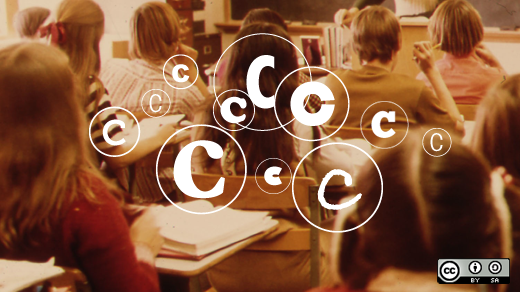A few events took place that affirmed for me that pushing forward with the agenda to rid our room of copyright violations and plagiarism is the right course of action.
I'll say this first: it'll be a long journey and this project was just a start. I'm certain we've got some accidental plagiarists and copyright violators in our room. That's OK, though. Really. This is a safe place for us to fail. I've been reading David Perkins's book Making Learning Whole and I feel good about this project we're finishing up and the one we're starting tomorrow. We're doing what Mr. Perkins refers to as Junior Varsity games. Students are researching, synthesizing, and creating--and doing all the parts involved in that process--but at a small scale. We haven't taken anything out of "the game"; instead, we're practicing the whole game over and over. The point is that if some has plagiarized or violated copyright, we'll be able to learn from it. They won't get kicked out of school or flunk my class. We'll be able to evaluate what went wrong and where we can go right in the future.
So, their projects are due tomorrow, but many students were done today. Perfect. We had time, then, to look through what they planned on turning in. "Where did you get this information?" "Was this picture CC licensed?" If they didn't know, hadn't written it down, or the images were copyrighted, one of our class mantras came into play: don't be lazy. There are no more thoughts of, "Oh well, just dock my grade." We're at the point where grades aren't on anyone's mind. We're about the process. "Fire up a laptop and let's find some CC pictures!" We have 3 computers in my room, but with so many students using them for the same reason--finding images--they were working 3 or 4 to a computer.
While talking about CC images, one of my students just could not wrap her head around why someone would not want other people to be able to use their images. Most of the other students agreed with her. I'm right there, too. I guess I can see someone whose job it is to take pictures not wanting other people make money off their work, but that's what the CC 3.0 license is for. I don't know. I'm sure there are cases I'm just not seeing.
One student had found the perfect image of some Egyptian jewelry, but when we went to the site she had written down, it had an "all rights reserved" tag at the bottom. We went digging for a CC licensed image, but couldn't find anything (they're researching Ancient Egypt.) Let's roll the dice I thought.
"Hey, there's an email address on this page. It wouldn't hurt to send them an email and ask if we can use their image."
"Guys! Mr. G's going to email this web site!"
Two hours later, I got a response giving us the go-ahead. I can't wait to tell my kids tomorrow.
After school got out, I had to zip across the street to the public library. While I was there, I figured I'd ask some of the questions my kids had about copyright to the librarians. While they couldn't provide much for answers besides "It's education so you should be good to go," they were extremely impressed that I'm digging into copyright with my kids and not just pretending like it doesn't exist. Besides just feeling like it's hard to "teach" my kids about copyright because I don't know much about it and there seems to be so much gray involved, I hadn't thought about how I would be doing them a disservice by ignoring it altogether.
Today really convinced me that I need to trudge on. Besides these two projects this quarter, we're going to hit research really hard fourth quarter. I think by then, the kids will really be ready to embrace creator rights. My goal is for them to choose their own CC licenses for whatever it is they create.
This article was originally posted at Learning is Life and is reprinted with permission.







29 Comments